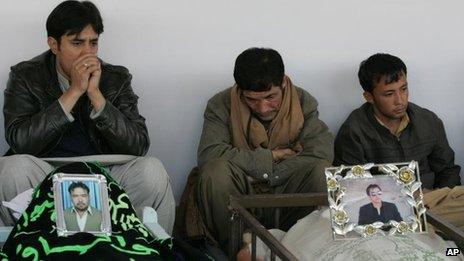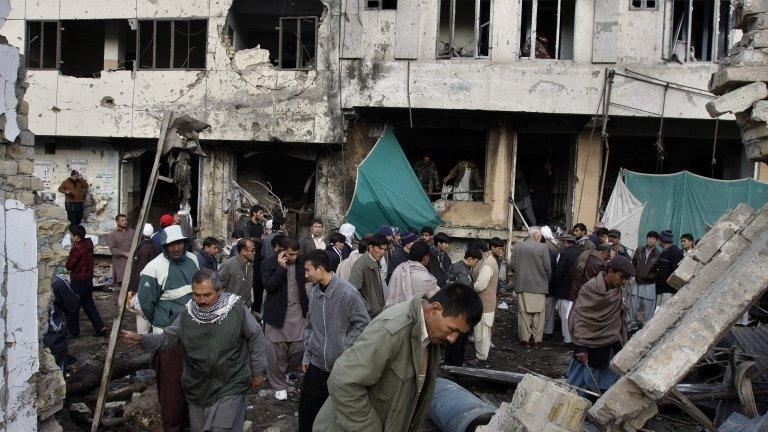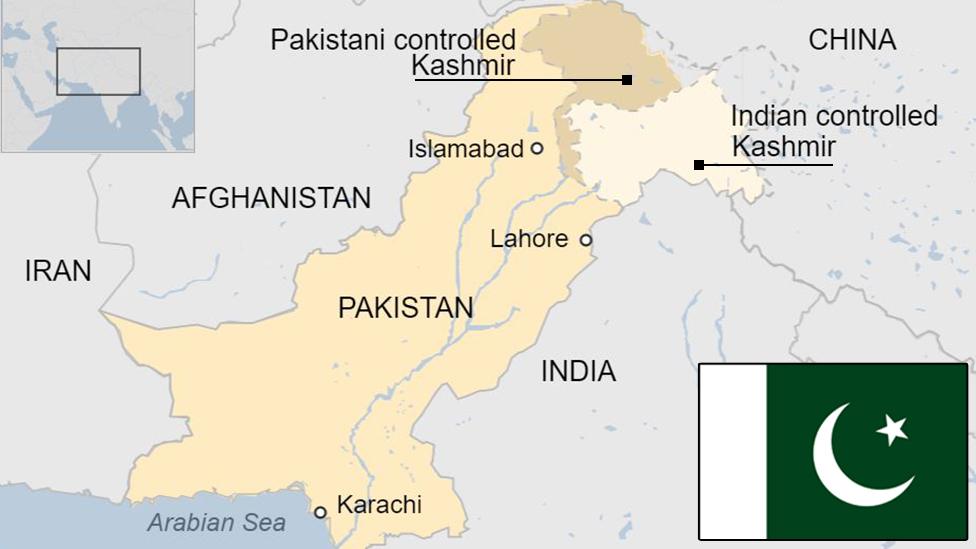Pakistan blasts: Shia refuse to bury Quetta bomb dead
- Published

Balochistan province has declared three days of mourning
Pakistan's minority Shia community has protested angrily over what it says is a lack of protection in the city of Quetta, a day after almost 100 people died there in a series of blasts.
Leaders of the community have refused to bury the dead until security is improved.
One Shia leader publicly criticised army chief Gen Ashfaq Kayani.
Sunni militant group Lashkar-e-Jhangvi said it carried out the deadliest attack in Quetta on Thursday.
Three days of mourning have been announced in Balochistan province after the blasts in its capital, on one of the deadliest days of bombings in Pakistan in recent years.
At least 119 people were killed in Quetta and in a separate attack in Mingora in the north-west.
'Hell on Earth'
The worst attack targeted a snooker hall late on Thursday evening in Alamdar Road in Quetta. One suicide bomber detonated his device and a car bomb was detonated minutes later as police, rescuers and media arrived.
Most of the dead were from Quetta's 500,000-strong Hazara Shia.
Members of the community on Friday laid coffins in the street, refusing to bury them.
The president of the Shia Conference, Syed Dawood Agha, told the BBC that his community would not bury its dead till the army had given an assurance it would take administrative control of the city.
A relative of one of the victims, Fida Hussain, said: "We want safety for our all sects, and all security measures should be taken for our safety. We will not bury them until the government fulfils all our demands."
One resident, Jan Ali, told Associated Press that Thursday's blast at the snooker hall was "a scene like hell on Earth".
"Rescue people were carrying out dead and injured, people bleeding and crying, and rushing them toward ambulances. I have never seen such a horrifying situation in my life."
Among the dead was Quetta-based rights activist, Irfan Ali, who was reportedly helping those wounded in the first blast.
Another resident, Abbas Ali, told AP news agency: "This government has totally failed in protecting us. Somehow we will get compensation for our losses but those who have gone away will not come back."
The BBC's Orla Guerin describes the "utter carnage" at the snooker hall
Key Shia leader Maulana Amin Shaheedi criticised what he said was the inaction of Gen Kayani.
He said: "I ask the army chief: 'What have you done with these extra three years you got [in office]? What did you give us except more death?'"
Shia protesters also turned out in the port city of Karachi to demonstrate their anger at the killings.
'Separatist attack'
At least 85 people were killed at the snooker hall, with more than 100 injured.
The BBC's M Ilyas Khan in Islamabad says Lashkar-e-Jhangvi has in the past targeted the area's Hazara Shia.
Earlier, a bomb in a market area killed 12 people and injured dozens more.
Paramilitary personnel of the Frontier Corps appeared to be the target.
A spokesman for militant group, the United Baloch Army, said it had carried out that bombing.
Balochistan is plagued by a separatist rebellion as well as the sectarian infighting.
The Taliban and armed groups that support them also carry out attacks in the province, particularly in areas near the Afghan border.
Also on Thursday, at least 22 people were killed and more than 80 injured in an explosion near Mingora in Pakistan's north-western Swat valley.
The blast took place at a religious gathering.
Police initially said the explosion was caused by a gas canister, but a senior official later said it was a bomb.
- Published12 January 2013

- Published4 October 2011
- Published15 March 2024
